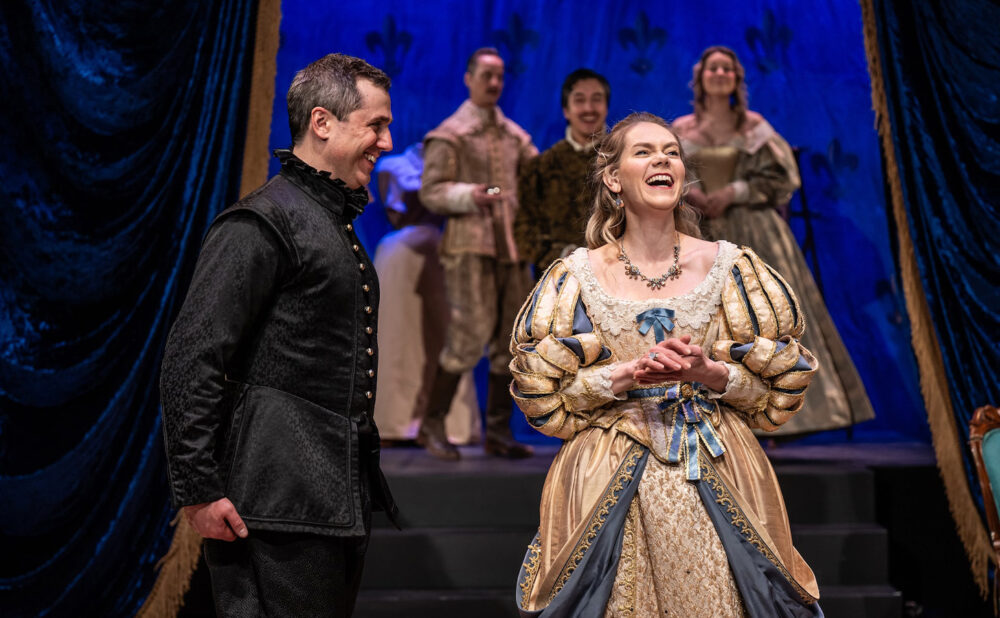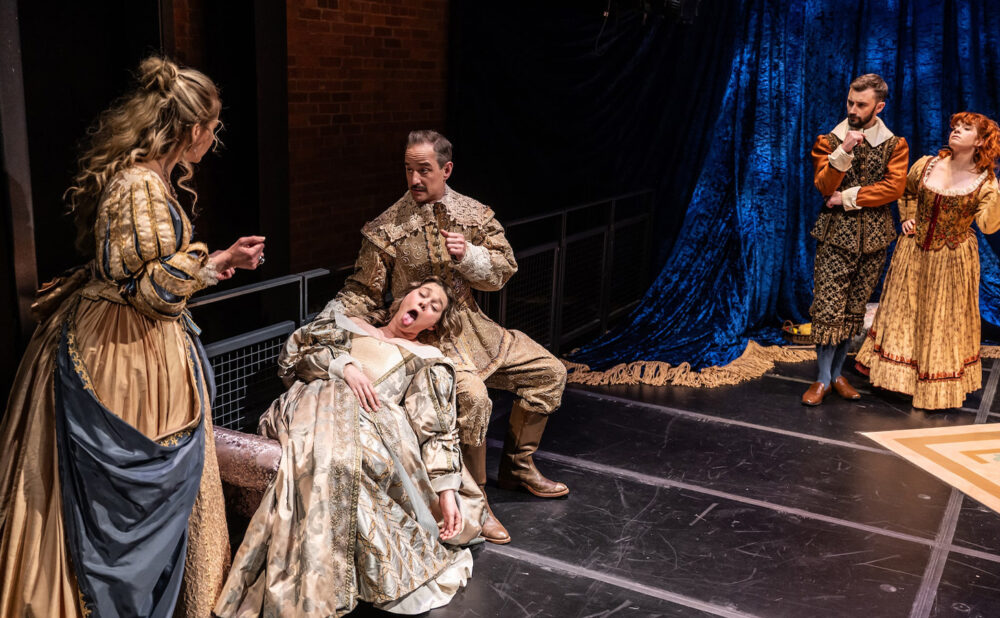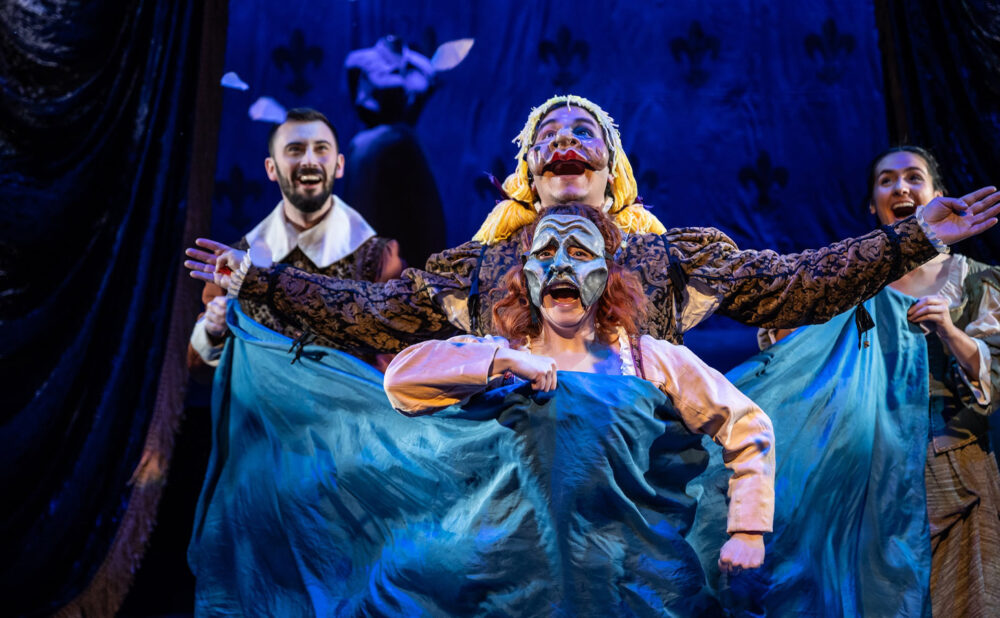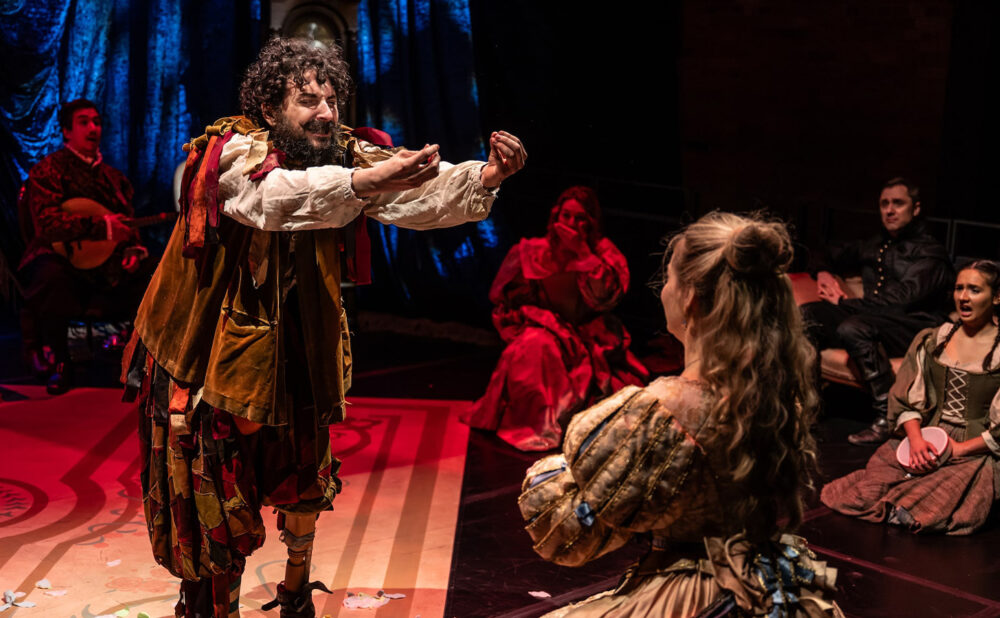Review: To all who like plays smart, not blunt, see ‘La Bête’ at Harbourfront
Talk is Free Theatre brings riotous comedy to Toronto
What: La Bête
Where: Harbourfront Centre Theatre, 235 Queens Quay W.
When: Now, until Sat., March 16
Highlight: Mike Nadajewski’s live-wire performance as the buffoonish Valere
Rating: NNNN (out of 5)
Why you should go: Dylan Trowbridge’s production is a beguiling thing — propulsive but considered, ridiculous though refined, cohesive yet textured.
A two-and-a-half-hour play set in the 17th century and consisting entirely of rhyming couplets may not be the most obvious way to spend a night out in Toronto. But a laser-precise production of David Hirson’s 1991 comedy La Bête from Barrie’s Talk is Free Theatre makes the case for exactly that.
Directed by Dylan Trowbridge and performed at the Harbourfront Centre, the show centres on a royal theatre troupe in Molière-era France. The group’s head, a pompous playwright named Elomire (Cyrus Lane), has an unshakeable affection for the tragic and highbrow. So, when their patron, the Princess of Conti (Amelia Sargisson), begins to insist that street-performing rabble-rouser Valere (Mike Nadajewski) join the fray, conflict sparks.
Rude, raucous, foolish, tedious, silly, oratorical, grandiose, genius: Valere demands such torrents of description, speaking as he does for hundreds of lines without pause. Nadajewski imbues him with a spontaneity that should be impossible, given the predictable nature of rhyming couplets; he and the play never go slack. Trowbridge’s production is a beguiling thing — propulsive but considered, ridiculous though refined, cohesive yet textured. While Laura Delchiaro’s detailed costumes and Joe Pagnan’s lush set are faithful to the period, the action buzzes with unmistakably contemporary energy, the result of actors occupying the here and now without hesitancy or restraint.
The skeptical might question the play’s relevance, an impulse not unfair: why should we care about these esoteric Frenchmen navigating a society so different from our own? But the answer comes when Valere performs his play, The Parable of Two Boys from Cadiz, for the princess’s consideration. Though, as expected, the script is vacuous, Valere’s staging is exciting and full of life. La Bête then turns into a defence of fun for fun’s sake — a theme that resonates in a theatrical ecosystem low on comedies. It’s also somewhat a defence of La Bête itself (though I suppose by developing the argument, the play pushes beyond the frivolity it praises).
Through all this, Elomire remains steadfast in his aesthetic principles. He’s pretentious and narrow-minded, yet admirable in his way — artistic standards shouldn’t be prescribed or abandoned, the play offers; instead, balance is key. It’s a lens through which the value of this grand and distinctive production is more than clear.










